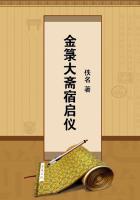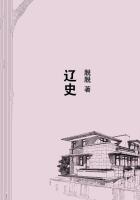The commodity-supply must be of a certain volume in order to satisfy the demand during a given period. A continual extension of the circle of buyers is counted upon. For instance, in order to last for one day, a part of the commodities in the market must constantly remain in the commodity-form while the remainder is fluent, turns into money. True, the part which stagnates while the rest is fluent decreases steadily, just as the size of the supply itself decreases until it is all sold. The stagnation of commodities thus counts as a requisite condition of their sale. The volume must furthermore be larger than the average sale or the average demand. Otherwise the excess over these averages could not be satisfied. On the other hand the supply must constantly be renewed, because it is constantly being drawn on. This renewal cannot come from anywhere in the last instance except from production, from a supply of commodities. It is immaterial whether this comes from abroad or not. The renewal depends on the periods required by the commodities for their reproduction. The commodity-supply must last all the time. The fact that it does not remain in the hands of the original producer but passes through various reservoirs, from the wholesaler to the retailer, changes merely the appearance and not the nature of the thing. From the point of view of society, a part of the capital retains in both instances the form of a commodity-supply until the commodities enter productive or individual consumption. The producer tries to keep a stock corresponding to his average demand in order not to depend directly on production and to ensure for himself a steady clientele. Purchase periods corresponding to the periods of production are formed and the commodities constitute supplies for longer or shorter time, until they can be replaced by new commodities of the same kind. Constancy and continuity of the process of circulation, and therefore of the process of reproduction, which includes the process of circulation, are safeguarded only by the formation of such supplies. It must be remembered that C'---M' may have been transacted for the producer of C, even if C is still in the market. If the producer were to keep his own commodities in stock until they are sold to the ultimate consumer, he would have to set two capitals in motion, one as the producer of the commodities and one as a merchant. As far as the commodity itself is concerned, whether we look upon it as an individual commodity or as a component part of social capital, it is immaterial whether the costs of forming the supply must be borne by its producer or by a series of merchants from A to Z.
Since the commodity-supply is nothing but the commodity-form of the product which at a particular level of social production would exist either as a productive supply (latent production fund) or as a consumption-fund (reserve of means of consumption) if it did not exist as a commodity-supply, the expenses required for its preservation, that is, the costs of supply formation -- i.e., materialised or living labour spent for this purpose -- are merely expenses incurred for maintaining either the social fund for production or the social fund for consumption. The increase in the value of commodities caused by them distributes these costs simply pro rata over the different commodities, since the costs differ with different kinds of commodities. And the costs of supply formation are as much as ever deductions from the social wealth, although they constitute one of the conditions of its existence.
Only to the extent that the commodity-supply is a premise of commodity circulation and is itself a form necessarily arising in commodity circulation, only in so far as this apparent stagnation is therefore a form of the movement itself, just as the formation of a money-reserve is a premise of money circulation -- only to that extent is such stagnation normal. But as soon as the commodities lying in the reservoirs of circulation do not make room for the swiftly succeeding wave of production, so that the reservoirs become over-stocked, the commodity-supply expands in consequence of the stagnation in circulation just as the hoards increase when money-circulation is clogged.
It does not make any difference whether this jam occurs in the warehouses of the industrial capitalist or in the storerooms of the merchant. The commodity-supply is in that case not a prerequisite of uninterrupted sale, but a consequence of the impossibility of selling the goods. The costs are the same, but since they now arise purely out of the form, that is to say, out of the necessity of transforming the commodities into money and out of the difficulty of going through this metamorphosis, they do not enter into the values of the commodities but constitute deductions, losses of value in the realisation of the value. Since the normal and abnormal forms of the supply do not differ in form and both clog circulation, these phenomena may be confused and deceive the agent of production himself so much the more since for the producer the process of circulation of his capital may continue while that of his commodities which have changed hands and now belong to merchants may be arrested. If production and consumption swell, other things being equal, then the commodity-supply swells likewise.
It is renewed and absorbed just as fast, but its size is greater. Hence the bulging size of the commodity-supply, for which stagnant circulation is responsible, may be mistaken for a symptom of the expansion of the process of reproduction, especially when the development of the credit-system makes it possible to wrap the real movement in mystery.
The costs of supply formation consist: 1) of a quantitative diminution of the mass of the products (for instance in the case of a flour supply;2) of a deterioration of quality; 3) of the materialised and living labour required for the preservation of the supply.
III. COSTS OF TRANSPORTATION














